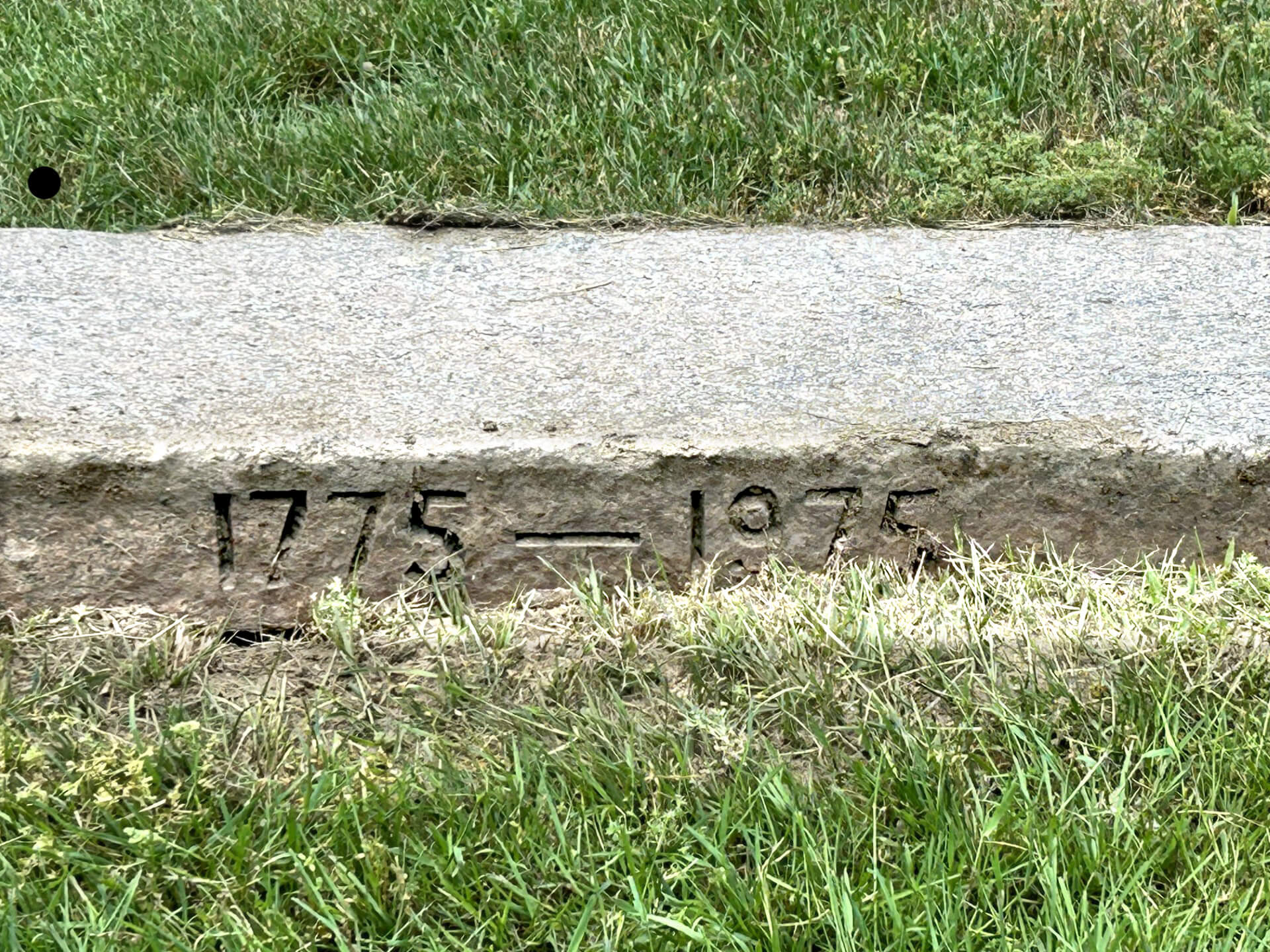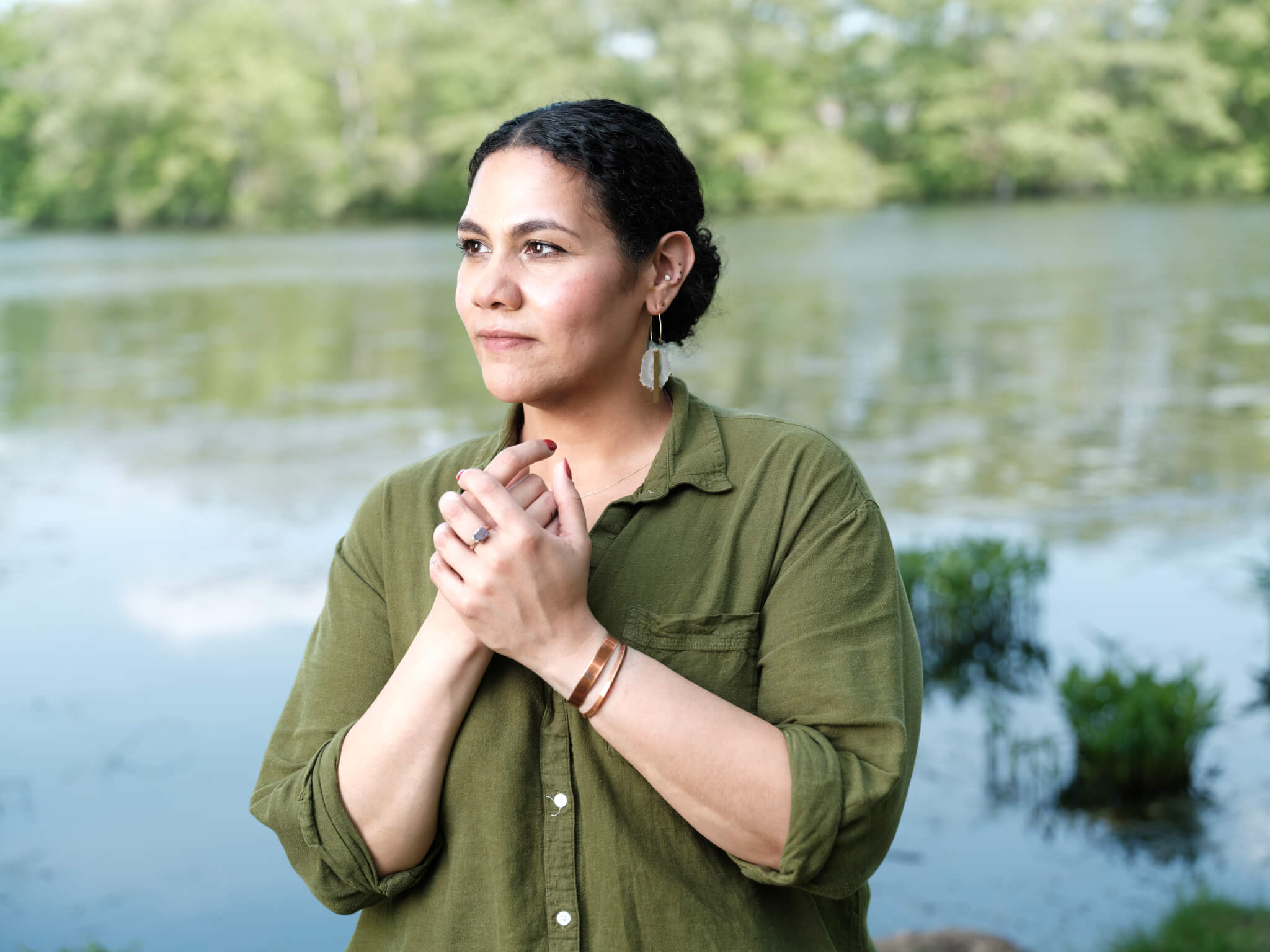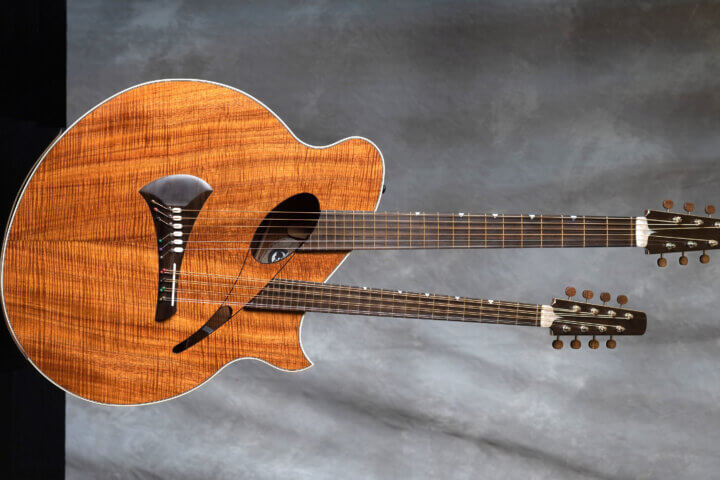By Laurie O’Neill — Correspondent
The last of ten benches the Garden Club of Concord gave the town in honor of the Bicentennial of the start of the American Revolution has been located — just hours after a story about the mystery appeared in The Concord Bridge.
The bench is on Everett Street at the entrance to Everett Gardens. But only the surface is exposed, so no wonder it has eluded two GCC “detectives,” Sandra Conrad and Rod Riedel.
Two Bridge readers contacted the paper separately Friday to report their seat-sleuthing results.
Bill Watts, who’s lived on Laurel Street for 42 years, frequently walks his Australian labradoodle, Augie, around the neighborhood. He’s passed the strange rectangular slab more times than he can count, he says. And he always wondered what it was.
“When I read about the bench, I had a feeling this was it,” Watts said.
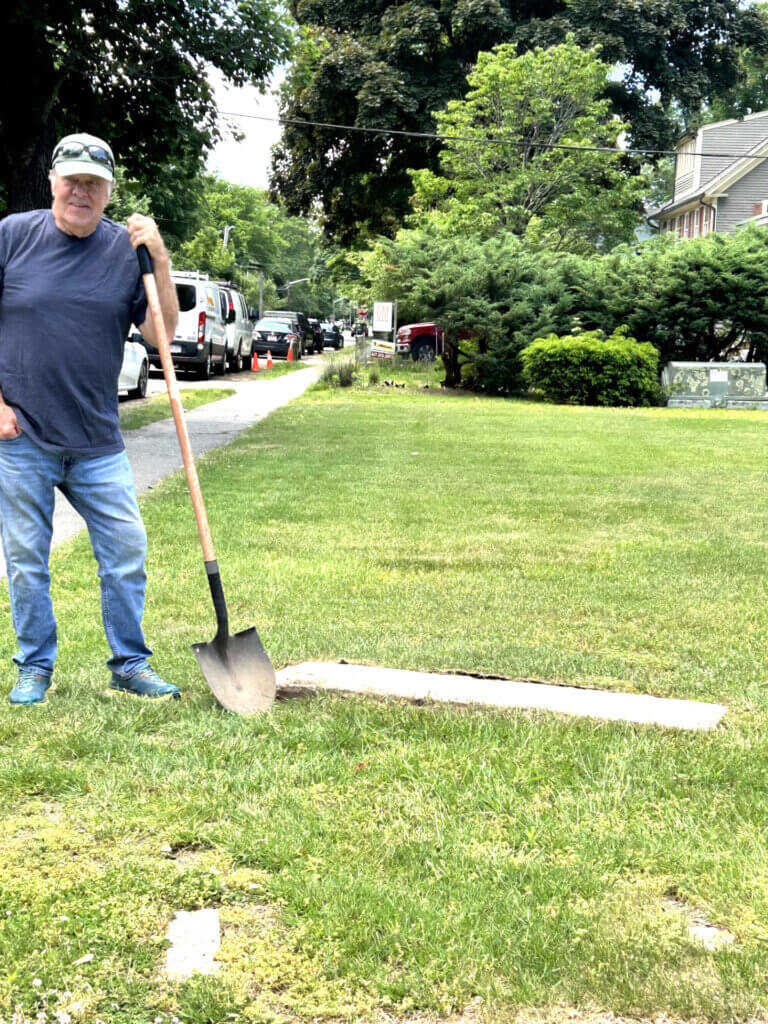
The retiree-turned-aspiring-bench detective grabbed a shovel.
Back at the spot, Watts dug down a bit in the front of the slab, looking for the critical identifying inscription carved into the stone.
Voila! There it was: 1775-1975.
Watts summoned his wife, Janet, to document his discovery by taking photos of him and the bench.
“I keep my eyes open all over town, so I see things, and I thought, ‘Why didn’t anybody ever fix this?’” he told The Bridge. “It’s been laying here for 20 years, and nobody’s done anything with it… so now we can!”
And on Friday night, another Concord reader reported he, too, knew the location of the granite seat.
“I just read the story about the missing bench and knew exactly where it was!” Dominic Ingegneri of Old Marlboro Road emailed the paper.
He said he remembers sitting there with his mother when she lived in the first apartment at Everett Gardens.
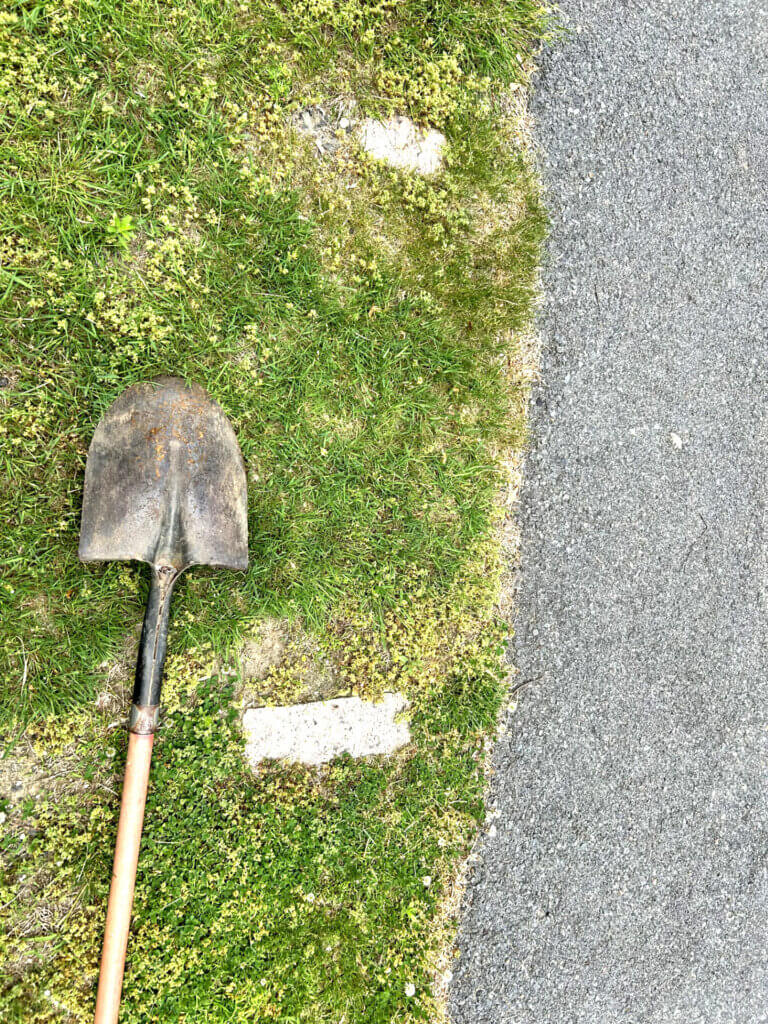
Ingegneri, too, thinks the bench was damaged about 20 years ago, and both he and Watts believe a snowplow hit it and knocked the seat off its base.
There is evidence of the bench’s concrete footings in the grass nearby. Someone, Ingegneri says, must have taken the legs and left the slab flush with the grass, into which it gradually settled.
Watts hopes someone will repair the seat and move it further from the road so it won’t get damaged again.
Update:
Julia Farwell-Clay, former president of the GCC, is grateful the bench has been found.
The mystery would not have unfolded this way, she said, “without The Concord Bridge; yet another good deed accomplished by our community paper. I am just so pleased and tickled this all came to pass.”
Celeste Katz Marston contributed reporting.
Here’s our original story from the June 7 edition of the Bridge:
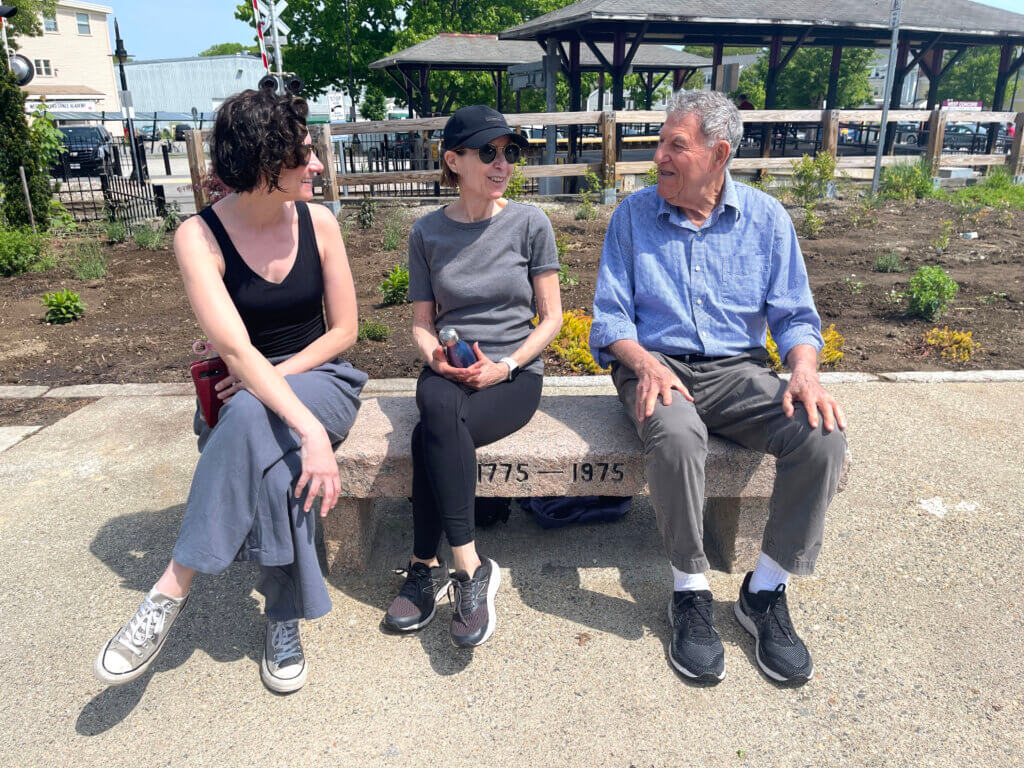
Where, oh, where can it be?
That’s the question the Garden Club of Concord is asking as its members attempt to locate a single granite bench — one of 10 the organization gave the town in 1975 in honor of the 200th anniversary of the initial conflict of the Revolutionary War.
Nine of the benches engraved with the dates 1775-1975 have been accounted for as of this spring by sleuthing GCC members Sandra Conrad and Rod Riedel.
Will you find the last one?
The hunt is on
Concordians likely pass at least one of these benches in their daily travels as most are in plain sight.
The nine sit on Commonwealth Avenue where the ATM used to be; at the corner of Heywood and Walden Streets; in front of Middlesex Bank on Main Street; in front of the Fowler branch of the Concord Free Public Library; in Emerson Field; on Main Street near Wright Tavern; and on Lexington Road across from Heywood Meadow.
Sleepy Hollow Cemetery has two: one on Author’s Ridge and the other between the cemetery’s internal roads, Stow and Wheeler Avenues.
The hunt to pinpoint the locations of all 10 benches began when Conrad, who has served as a GCC vice president and president, was reading through the club’s records to create a history of the organization for its 90th anniversary in 2018.
She came across a reference to the donated benches and was intrigued.
The granite benches replaced several wooden models the GCC had previously given the town. While most of those have disappeared, Conrad learned one donated wooden bench sits at the top of the driveway near Vanderhoof’s Hardware on Main Street. Others remain in Heywood Meadow.
Conrad initially encountered a “small mystery” when she read that although the town’s Bicentennial Committee’s records say it received 12 benches, the club’s records twice mention 10.
Julia Farwell-Clay, a past GCC president who edits the organization’s newsletter, posits there was perhaps “a transcription error, a shortfall of finances, or a change of plans.”
All the granite benches were placed on public property, Conrad says, so she and Riedel scoured fields, schools, town offices, and other sites to find them.
She located eight of them, and Riedel began photographing the benches on walks around town. With input from Patricia “Tish” Hopkins, Concord’s cemetery supervisor, Riedel located the ninth in Sleepy Hollow.
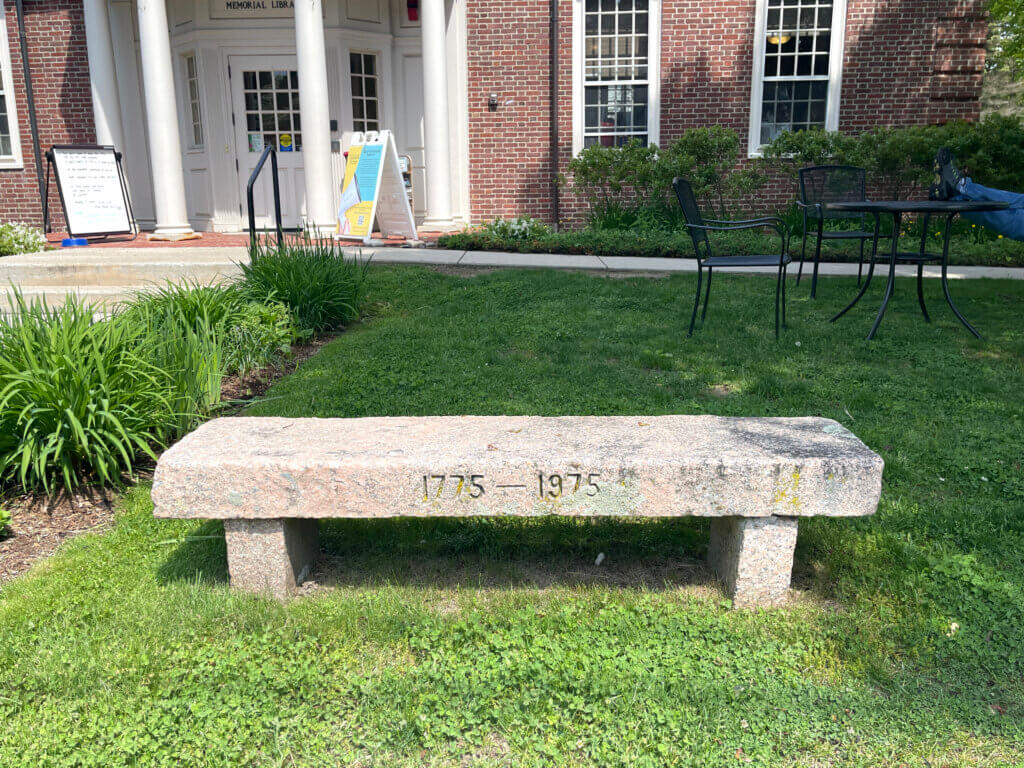
A town wide search?
But the hunt continues for the tenth. Riedel is using Google Maps’ Aerial and Street Views as a tool to help him find it. Conrad, who thinks the seat may have been initially at the Main Library, got in touch with Anke Voss in Special Collections.
Though Voss had no information to share, “I can’t help but think one of the benches was at some point put there, as there is one in front of the Fowler Library branch,” Conrad says.
Farwell-Clay thinks “it would be fun to have a town wide invitation to look for the tenth bench.”
She says the GCC briefly considered donating more benches to the town for the upcoming 250th anniversary of the Revolutionary War but decided “a generous grant” to Concord’s Liberty Trees project would be “more in line with our club mission.”
Conrad says the GCC donated a Liberty Tree in 1975 to commemorate the 200th anniversary of the removal of the original Liberty Tree, an elm that stood in Boston for 119 years until British Regulars took it down. The donated tree, a red oak, still stands in Heywood Meadow.
If you think you’ve found that elusive tenth bench, make sure it isn’t one the GCC has already located.
If you solve the mystery, let the GCC know via gardenclubofconcord.org.
“It’s unlikely we’ll find it after 50 years,” says Conrad, “but you never know!”


